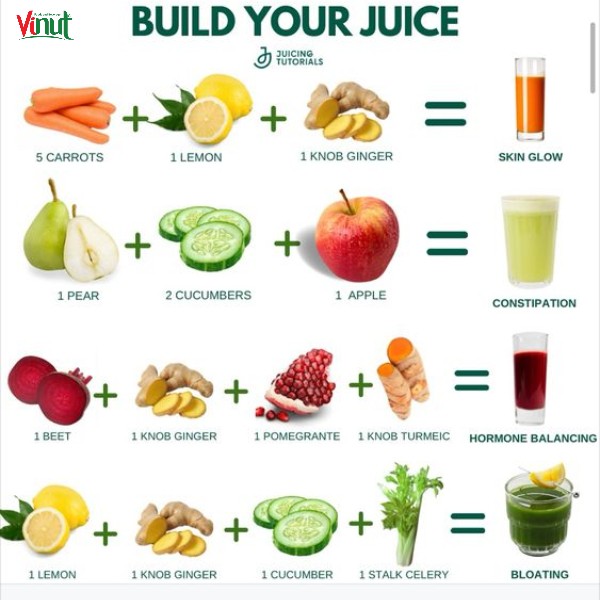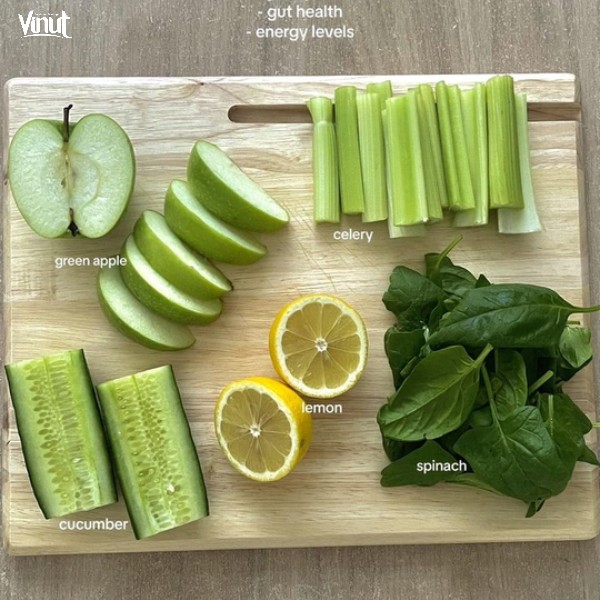
News
Fruit Juices to Improve Digestion Healthy

When it comes to improving digestion, many people turn to natural remedies, and fruit juice is a popular choice. Packed with essential nutrients, vitamins, and enzymes, fruit juices can help cleanse your digestive system, promote healthy gut flora, and ease digestive issues. In this article, Cojo cojo will explore the best fruit juices for digestion, their benefits, and how you can incorporate them into your diet for maximum health benefits.

The Importance of Good Digestion
Good digestion is crucial for overall health and well-being. It ensures that your body absorbs nutrients effectively, supports a strong immune system, and prevents digestive disorders. Poor digestion can lead to various health issues such as bloating, constipation, diarrhea, and nutrient deficiencies. Therefore, maintaining a healthy digestive system is essential for a healthy life.
How Fruit Juice Aids Digestion
Fruit juices contain natural enzymes and fibers that aid in breaking down food, making it easier for your body to absorb nutrients. The liquid form of fruit juice also allows for quick absorption of nutrients, providing an instant energy boost and promoting better digestion. Here are some ways fruit juice can help improve digestion:
- Enzyme Activity: Enzymes found in fruit juices help break down complex carbohydrates, proteins, and fats into simpler forms, making them easier to digest.
- Hydration: Proper hydration is essential for digestion, and fruit juices provide a hydrating alternative to water, especially for those who find it challenging to drink enough water.
- Fiber Content: Some fruit juices contain soluble fiber, which helps regulate bowel movements and prevent constipation.
- Prebiotics: Certain fruit juices act as prebiotics, promoting the growth of healthy gut bacteria and improving gut health.

Best Fruit Juices for Digestion
1. Apple Juice
Apple juice is rich in pectin, a type of soluble fiber that helps regulate bowel movements and promotes the growth of beneficial gut bacteria. It also contains malic acid, which aids in the digestion of proteins and fats.
2. Pineapple Juice
Pineapple juice is loaded with bromelain, an enzyme that helps break down proteins and reduce inflammation in the digestive tract. It also has a high water content, keeping you hydrated and aiding in digestion.
3. Papaya Juice
Papaya juice contains papain, an enzyme that aids in the digestion of proteins. It is also rich in fiber, which helps maintain regular bowel movements and prevent constipation.
4. Ginger Juice
Ginger juice is known for its anti-inflammatory properties and ability to soothe the digestive tract. It stimulates the production of digestive enzymes and helps relieve symptoms of indigestion, such as bloating and gas.
5. Lemon Juice
Lemon juice is a natural detoxifier that stimulates the production of digestive juices and bile, aiding in the breakdown of food. Its acidic nature helps balance stomach pH levels and prevent indigestion.
6. Aloe Vera Juice
Aloe vera juice has soothing properties that help reduce inflammation in the digestive tract. It contains enzymes that aid in breaking down sugars and fats, promoting smoother digestion.
7. Cucumber Juice
Cucumber juice is hydrating and contains digestive enzymes that help break down food. It also has a cooling effect on the digestive system, reducing inflammation and discomfort.

How to Incorporate Fruit Juice into Your Diet
To reap the digestive benefits of fruit juices, it’s important to incorporate them into your diet in a balanced and mindful way. Here are some tips on how to do so:
1. Start Your Day with Fruit Juice
Drinking a glass of fresh fruit juice on an empty stomach can kickstart your digestive system and provide an energy boost for the day. Opt for juices like lemon water or ginger juice to stimulate digestion.
2. Combine with Meals
Pairing fruit juice with meals can help improve digestion. For example, drinking pineapple juice with protein-rich meals can aid in protein digestion due to the presence of bromelain.
3. Use as a Snack
Fruit juices can be a healthy snack option between meals. They provide quick energy and essential nutrients without the heaviness of solid food, keeping your digestion smooth.
4. Homemade Juices
Making your own fruit juices at home ensures that you get the maximum benefits without added sugars or preservatives. Use fresh, organic fruits and a good juicer to prepare your juices.

Recipes for Digestive Health
Here are a few simple and delicious fruit juice recipes to improve digestion:
1. Apple-Ginger Juice
- Ingredients: 2 apples, 1-inch piece of ginger, 1 cup water
- Instructions: Blend all ingredients until smooth. Strain if desired and enjoy.
2. Pineapple-Papaya Juice
- Ingredients: 1 cup pineapple chunks, 1 cup papaya chunks, 1 cup water
- Instructions: Blend all ingredients until smooth. Strain if desired and enjoy.
3. Lemon-Cucumber Juice
- Ingredients: 1 cucumber, 1 lemon, 1 cup water
- Instructions: Blend all ingredients until smooth. Strain if desired and enjoy.
Precautions and Considerations
While fruit juices offer numerous benefits for digestion, it’s important to consume them in moderation. Here are a few precautions to keep in mind:
- Sugar Content: Some fruit juices can be high in natural sugars, which may not be suitable for individuals with diabetes or those watching their sugar intake.
- Acidic Nature: Certain fruit juices, like lemon and orange juice, are acidic and can cause discomfort for individuals with acid reflux or sensitive stomachs.
- Allergies: Be mindful of any fruit allergies you may have and avoid juices that contain those fruits.

Conclusion
Incorporating fruit juices into your diet can be a delicious and effective way to improve digestion. With their natural enzymes, fiber, and hydrating properties, fruit juices support a healthy digestive system and overall well-being. Remember to choose fresh, organic fruits and make your juices at home for the best results. Enjoy these refreshing and nutritious beverages as part of your daily routine to keep your digestion smooth and your health thriving.
FAQs
1. Can fruit juice replace whole fruits in my diet?
While fruit juice offers many benefits, it should not completely replace whole fruits. Whole fruits provide fiber and other nutrients that are often lost during the juicing process. It’s best to include both in your diet.
2. How much fruit juice should I drink daily for digestive health?
It’s recommended to limit fruit juice intake to one to two servings per day to avoid excessive sugar consumption. Balance it with other hydrating fluids like water.
3. Are store-bought fruit juices effective for digestion?
Store-bought fruit juices often contain added sugars and preservatives that can diminish their digestive benefits. Opt for fresh, homemade juices whenever possible.
4. Can fruit juice help with constipation?
Yes, fruit juices like apple and prune juice can help alleviate constipation due to their high fiber content and natural laxative properties.
5. What is the best time to drink fruit juice for digestion?
Drinking fruit juice in the morning on an empty stomach or between meals can be most effective for aiding digestion and providing an energy boost.
